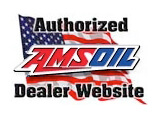05 Aug It’s Vital to Use a Motor Oil Specifically Formulated for Marine Engines.
Passenger car motor oils don’t necessarily meet the demands of marine engines
Although some boaters and anglers don’t realize it, using a dedicated marine oil is vital to protecting marine motors. A 2014 industry survey of North American boat owners revealed that less than 50 percent use a dedicated marine oil in their sterndrive and inboard engines. The figure is quite a bit better for outboard owners, with nearly 80 percent using a marine oil.
Everyone who owns a four-stroke marine motor should be using a marine motor oil instead of passenger car motor oil .
Rust and Corrosion
Protection against rust and corrosion is the number-one reason. Despite what most people assume, motor oils have no natural ability to protect against rust or corrosion. Instead, special rust and corrosion inhibitors must be added to the formulation to provide the required protection, and some oils simply don’t contain the correct additives in the correct concentration.
During engine operation, a layer of oil coats engine parts and the crankcase walls. The lubricant film protects against rust and corrosion as long as it remains in place. However, after you shut down the motor for the day, gravity draws the oil back down into the oil sump, leaving components unprotected. The longer the engine sits, the more likely it is rust and corrosion will form.
Once rust begins to form, it doesn’t stop. It can slowly spread to the crankshaft journals, cylinder wall, piston rings and other areas. It acts like sandpaper and scours metal surfaces until engine failure eventually results. It can also prevent the piston rings from forming a good seal against the cylinder wall, which reduces compression and leads to power loss.
Aluminum parts may not rust, but they can corrode, especially in marine motors constantly exposed to humid air. All cylinders aren’t completely sealed when the engine shuts down, allowing damp air to infiltrate the combustion chamber and cause aluminum pistons to corrode. Corrosion on the piston crown invites conditions that can lead to pre-ignition/ detonation, a phenomenon where the fuel/air mixture ignites sporadically and potentially causes catastrophic engine failure.
It’s vital to use a motor oil formulated with anti-rust/anti-corrosion additives in marine engines. These additives form a resilient protective layer that clings to engine parts for maximum protection. Since passenger cars/trucks are typically driven daily, rust and corrosion largely isn’t a concern. As such, most passenger car motor oils don’t contain sufficient rust and corrosion inhibitors for marine engines. Make sure you use a motor oil specifically formulated for your application.
Fuel Dilution
Fuel dilution is another problem many boat owners don’t think about. It’s especially problematic in marine engines compared to other engines. Outboard motors typically use lake or river water for cooling. When you start the motor, it immediately draws cold water into the cooling system and circulates it throughout the motor. Compared to an engine with a closed cooling system – one that uses a radiator and coolant – it takes longer to warm up. A colder engine prevents the rings from sealing completely. More clearance between the ring and cylinder wall allows fuel to leak into the oil sump, diluting the oil and reducing its ability to protect against wear.
Increased Stress
Adding to the challenge, marine motors are constantly under load, which can shear the structure of the motor oil and reduce its ability to guard against wear. The typical marine motor propelling a boat 30 mph operates around 5,000 rpm. Compare that to an automotive engine, which runs about 2,000 rpm at 60 mph. Unlike automotive engines, which catch a break every time you coast down a hill or roll up to a red light, boat motors rarely coast. That increased stress requires a robust oil formulated to withstand the shearing conditions inside the engine. An improperly formulated oil can lose viscosity, which prevents the oil from forming a durable lubricating film on parts and protecting against wear.
AMSOIL formulates marine engine oils to deliver the extra measure of rust and corrosion resistance and resistance to viscosity loss today’s four-stroke marine engines need to run at peak performance. They maximize your engine’s performance and life, helping you stay on the water and avoid the hassles of unnecessary maintenance.

